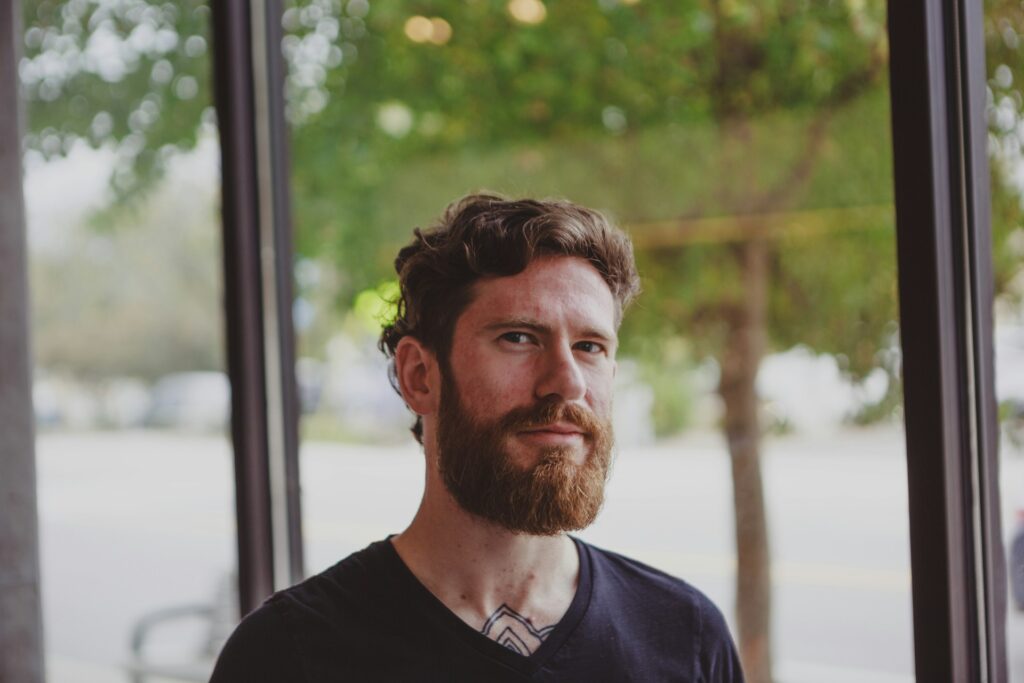People pleasing often starts as a way to keep the peace, avoid conflict, or feel needed.

However, the longer it goes on, the more it can leave you feeling stretched thin and disconnected from what you actually want. It’s not about being kind or helpful—that’s different. It sees you constantly moulding yourself to fit what other people want, even if it means sidelining your own needs. These affirmations can help ground you when you’re tempted to shrink yourself or overextend. They’re not magic, but they’re reminders of where your value actually comes from, and how you’re allowed to show up, just as you are.
1. “I’m allowed to disappoint people and still be a good person.”

This one hits hard because people pleasers often equate saying no with being selfish or letting someone down. However, the truth is, disappointment is part of life, and it doesn’t make you bad or unkind. You’re not responsible for managing everyone’s expectations at the expense of your own peace.
When you remind yourself of this, it gets easier to set boundaries without spiralling into guilt. You can honour someone else’s feelings without fixing them. You’re not here to play emotional caretaker for every person who crosses your path.
2. “My needs matter just as much as anyone else’s.”

People pleasers often rank their own needs at the bottom of the list—if they make the list at all. However, your needs aren’t less important just because they’re inconvenient or go against the grain. You don’t have to justify them with productivity or perfection. Reminding yourself of this brings things back into balance. It’s not a way of making your needs more important than anyone else’s—it’s letting them count. You get a say in how your energy is used.
3. “No is a full sentence.”

It’s tempting to pad every ‘no’ with five reasons and three apologies. But the more you explain, the more room you give people to push back. Learning to say no without over-defending it is a quiet act of power. It shows you trust yourself. Practising this can feel uncomfortable at first, but after a while, it builds confidence. You don’t owe everyone access to your time, energy, or emotional labour. Saying no is not rude. It’s a boundary, not a betrayal.
4. “I do not need to earn rest, love, or kindness.”

People pleasers often tie their worth to what they can do for other people. However, you don’t have to perform or produce to deserve softness. You’re allowed to rest without guilt. You’re allowed to receive without proving yourself first. This affirmation unhooks you from that inner critic who insists you’re only as good as what you give. You’re already enough. Rest is not a reward—it’s a right.
5. “I’m allowed to take up space.”

This is about more than just standing your ground—it’s about believing you’re meant to. People pleasers often shrink themselves to avoid being ‘too much’—too loud, too opinionated, too needy. But your presence isn’t a problem to solve. Taking up space isn’t arrogance—it’s a sign that you’re finally letting yourself belong. You don’t have to be invisible to be liked. You’re not difficult for having depth.
6. “I do not have to fix how other people feel.”

If someone’s upset, your first instinct might be to jump in and smooth everything over. However, emotional rescue isn’t always helpful—it often enables the cycle of you putting yourself last. Their feelings are theirs to feel. You don’t need to carry them. That doesn’t mean you don’t care. It means you’re letting other people take responsibility for their own emotions, while you stay grounded in your own. It’s empathy with boundaries, not guilt disguised as kindness.
7. “I release the fear of being misunderstood.”

This is a big one. People pleasers often bend over backwards to be clear, agreeable, or likeable—all to avoid being seen in the wrong light. Of course, no matter how carefully you speak or act, someone will misread you at some point. That’s not yours to carry. Letting go of that fear frees up so much energy. You can’t control how people perceive you. What you can control is how true you are to yourself in the process.
8. “I’m not selfish for protecting my peace.”

There’s a difference between being selfish and having self-respect. People pleasers often confuse the two because they’re used to overextending. The thing is, protecting your peace has nothing to do with neglecting other people—it’s about not abandoning yourself in the name of being ‘nice.’ Boundaries aren’t barriers, they’re filters. They let the good in without draining you in the process. When you prioritise your peace, you actually show up more sustainably for the people who matter.
9. “It’s okay if people don’t like me.”

This one might sting, especially if your self-worth is tied to approval. But here’s the truth: someone’s dislike of you doesn’t make you less worthy—it just means you’re not for them, and that’s okay. Trying to be universally liked is exhausting and impossible. The moment you accept that not everyone will vibe with you, you free yourself to be real, not rehearsed.
10. “I don’t have to agree to keep the peace.”

People pleasers often nod along even when something feels off, just to avoid conflict. The problem is, constantly agreeing when you don’t mean it disconnects you from your own voice. You can disagree without being difficult. Standing in your truth might create tension in the short term, but it also builds trust in the long run. Real peace isn’t built on silence—it’s built on honesty.
11. “My value isn’t based on how helpful I am.”

You’re more than what you do for other people. Your worth doesn’t increase with every favour or drop when you finally say no. Being helpful is lovely, but it’s not your job to be everyone’s fixer, emotional crutch, or on-call support system. This affirmation reminds you that you’re valuable even when you’re not useful. You’re not a resource—you’re a human being.
12. “Saying yes to other people shouldn’t mean saying no to myself.”

When you say yes out of guilt or fear, you often end up overcommitted, resentful, or drained. A true yes should feel like alignment, not like self-abandonment. You’re allowed to weigh your own needs before giving your energy away. This phrase helps you pause before responding. It invites you to ask, “What will this cost me?” before you agree. Your time is valuable. Your yes should mean something.
13. “It’s safe to let people be disappointed in me.”

This might be one of the hardest ones. Disappointment can feel like failure to a people pleaser, but it’s actually just part of adult relationships. You are not responsible for managing everyone’s emotional weather. Letting someone down doesn’t mean you’re wrong or bad—it means you’re human with limits. You’re allowed to honour those limits without spiralling into guilt or self-doubt.
14. “I’m allowed to prioritise myself without explanation.”

You don’t need a script or a perfectly crafted excuse to protect your energy. You are allowed to say no, reschedule, or opt out, even if all you want is quiet or rest. That’s not flakiness—it’s self-awareness. The more you practise this, the easier it gets to trust your own yes and your own no. And that’s what makes space for more authentic, mutual relationships—ones where you don’t have to constantly prove your worth to be loved.


